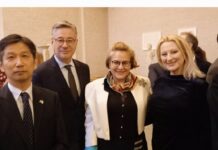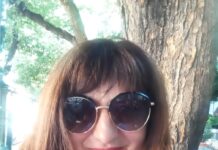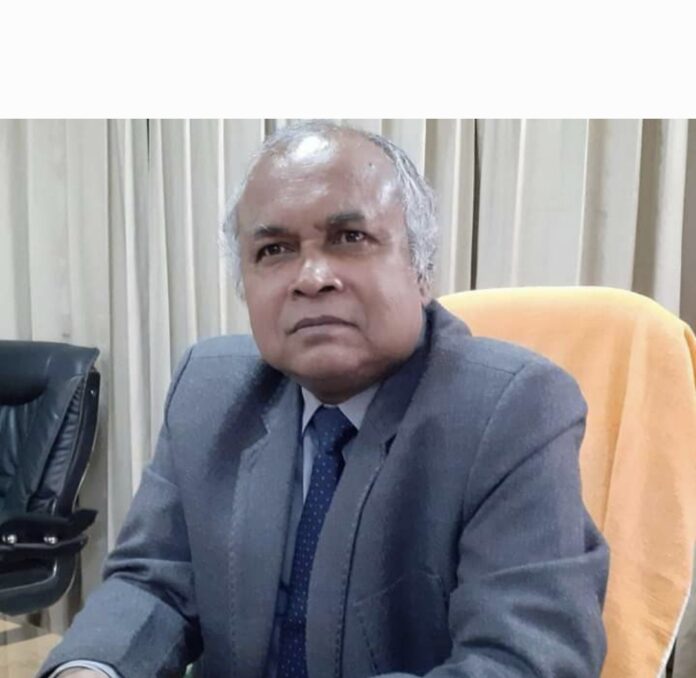Επιμέλεια: Εύα Πετροπούλου Λιανού
Translated by Alsm Mahbub
Bio: Poet Mehedi Iqbal was born in 3 January in 1964 at Jamalpur district in Bangladesh.He is a poet of eighties.He is a doctor by profession. Studied at Moscow State University. In 1985 he represented Bangladesh in the 12th World Student Youth Festival held in Moscow. Several of his poems were translated into Russian and published in various newspapers in Moscow.
In 1982, he was awarded by the Bangladesh Parishad with the Ekushe Literary Award. In 2019 Pabna small paper ‘Kavita Folder’ awarded him Poet Omar Ali Honor Medal.
His published books are :
1. God’s Horse (Book of poetry)
2.Torn River Fragments (Book of poetry)
3. Hamilon’s Rats and Other Poems (Book of poetry)
4. I Drop Raindrops on Your Roof( Book of poetry)
5. Bread Distance (Book of poetry)
6. What I’m Planting (Book of poetry)
7. Palm tree, standing on one leg (Novel)
In the early eighties he edited a Magazine called ‘Biborton’. Along with poetry, he also writes prose.
When The War Started – Mehedi Iqbal
When the war started
The children don’t know that
Many of them will be orphans
Many are crippled in bed.
And many will be gone
Before they understand the world.
School hours will never reach to the ears of them.
And many will not run after the birds or butterflies with joy!
When the war started
Many women have to prepare to become widows
The grief of losing a child in advance floats
In the eyes of elderly parents.
When the war started
Then the birds understand,
They have to fly somewhere far away!
When the war started
Then many meow meow
I want peace with placards. I want peace
But peace has been in the hands of those in power
Since time immemorial!
When the war started
Many people look for the cause of war,
Why war for and what war?
Why do they forget this fact?
Everything is through war
Dominance and trade, scepter
Arrogant people take ownership of the land!
Translated by Alam Mahbub.
Blood – Mehedi Iqbal
If it is cut somewhere, blood is shed
I look at the blood spilled in google eye
I want to say blood – Oh blood, why are you just red?
Everyone’s body is red, why don’t you have seven colors?
Whether white or black, green or brown
Be it Christian, Buddhist, priest or Jew or Muslim
The same current in everyone’s body, why are you just red?
But how many arrangements of separation, how many sharp knives and poisoned arrows
What a horrible massacre in history, how many cries of unarmed people, women and children!
Oh blood, how much you have been helpless for ages
How many mother’s lap have you seen to be empty to go to drops!
What have people been able to do and separate you?
On the contrary, they are separated from the worst racists, religion and ethnic killers
Hate and spit oppressors and oppressors have been raining down the ages!
Dear blood, I know you will be flowing in one and the same stream
Regardless of race or religion, I will sing the music of humanity forever!
Translated by Alam Mahbub.
Let’s Think A Little – Mehedi Iqbal
Let’s look a little farther, let’s look at the distant stars
Let’s find out how light air conducts a suitable environment like the earth
Let’s think about Stephen Hawking, let’s find another habitat in the universe.
Floating atomic particles, ultraviolet through ozone pores
What is the trouble with pollution! Increasing the sea level by giving warmth
Frequent tornadoes, earthquakes, tidal waves
What a variety of disorders, high blood pressure, diabetes, heart disease, cancer!
Let’s look a little farther, think of the next generation
I think of the smiling faces of the children, the green trees and the flying grasshoppers
I think of the silent fall of the dew and the dance of the waves.
Let’s look a little farther, think of species conservation
Why this blindness, vengeance, blood stains?
Why this black and white, religion religion race race?
I know the roots are identical, the original source is Homosapiens
Why holi in whose blood? Let’s think!
Translated by Alam Mahbub.

































